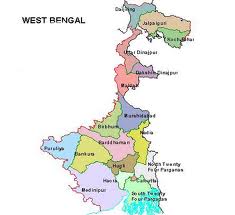Currently, more than 50,000 patients are suffering from numerous chronic arsenic-related diseases including several types of cancer. Many have already died and more than 85 millions of people are consuming arsenic poison water through drinking water and food prepared with arsenic poison water on a daily basis. There is no remedy to these problems and the only solution to the problem is to use arsenic-free water. In 2009, AHWEEC’s V.P., visited several districts of Bangladesh and discovered various level of arsenic patients, presence of arsenic in Coconut juice, Date plum juice and cow milk.
can supply clean drinking water for one family
The bar diagrams show the Division, District and number of Upazila in each district, and less than 40 percent contaminated tube wells (yellow) and more that 40 percent contaminated tube wells (red). This information is based on the National Screening Survey conducted in 2004. The current contaminated status may be different than the previous survey because of geochemical changes in the groundwater aquifers.
Feasibility Study for installation of 5 Mukti Arsenic and Pathogens Treatment Technology.

Feasibility Study for installation 5 Mukti Arsenic and pathogens Treatment Technology in West Bengal, Bihar, Uttar Prodesh.

Feasibility Study for installation 3 Mukti Arsenic and pathogens Treatment Technology.

Feasibility Study for installation 3 Mukti Arsenic and pathogens Treatment Technology.

Feasibility Study for installation 5 Mukti Arsenic and pathogens Treatment Technology.

Feasibility Study for installation 5 Mukti Arsenic and pathogens Treatment Technology.

Feasibility Study for installation 5 Mukti Arsenic and pathogens Treatment Technology.

Feasibility Study for installation 5 Mukti Arsenic and pathogens Treatment Technology.

Feasibility Study for installation of Mukti Community-based Water Treatment Technology.
Feasibility Study for installation of Mukti water Treatment Technology.
Feasibility Study for installation of Mukti water Treatment Technology.
Feasibility Study for installation of Mukti water Treatment Technology.
Feasibility Study for installation of Mukti water Treatment Technology.
Feasibility Study for installation of Mukti water Treatment Technology.
Feasibility Study for installation of Mukti water Treatment Technology.
Feasibility Study for installation of Mukti water Treatment Technology.
Feasibility Study for installation of Mukti water Treatment Technology.
Feasibility Study for installation of Mukti water Treatment Technology.
Feasibility Study for installation of Mukti water Treatment Technology.
Feasibility Study for installation of Mukti water Treatment Technology.
Feasibility Study for installation of Mukti water Treatment Technology.
Feasibility Study for installation of Mukti water Treatment Technology.
Feasibility Study for installation of Mukti water Treatment Technology.
Feasibility Study for installation of Mukti water Treatment Technology.
Copyright © 2024 Humane Water. All Rights Reserved. Business Website Design & Hosting by Alpha Net. Powered By Alpha CMS